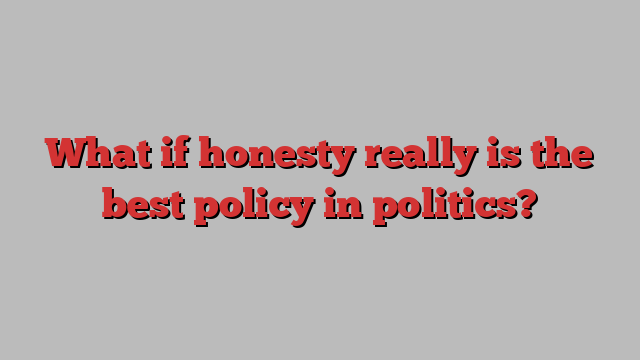
Unlock the US Election Countdown newsletter for free
The stories that matter on money and politics in the race for the White House
The writer is an FT contributing editor, chief economist at American Compass and writes the Understanding America newsletter
It has become difficult to remember, in this chaotic political era, that the people can govern themselves responsibly. The US arrived at the start of the third millennium with national debt below one-third of gross domestic product and a healthy budget surplus. The problems of overconsumption and profligate spending only began then.
Americans proceeded to spend the next generation living on the national credit card. Annual deficits for the federal budget and trade in goods now exceed $1tn. Interest on the national debt exceeds defence spending. An economic model premised on buying cheap stuff with borrowed money has proved a formula for widespread social decay. The US death rate from drug abuse is now comparable to the Russian death rate from alcohol abuse in the decade after the Soviet Union’s collapse.
Lack of seriousness in US politics contrasts woefully with the seriousness of the country’s challenges. Both Democrats and Republicans regard the solution as more tax cuts and credits — for your family, your home, your business, your car. Donald Trump wants to impose tariffs someone else will pay. Kamala Harris suggests debt forgiveness and new loans to later forgive.
But what if these consultant-honed, ad-ready pitches are not, in fact, what voters want? New polling released by American Compass in partnership with YouGov suggests just that.
Alongside more typical political messages, 2,000 Americans were asked how they would feel about a politician who was honest about the hole the US had dug for itself and the hard work it would take to get back out, saying: “. . . We all sense that America is in decline, but decline is a choice. Running up a tab we can’t pay is a choice And I’m offering you another choice: that we come together and make the sacrifices we have to make to get us back on the right track.”
The response was overwhelming, with 69 per cent of respondents more likely to support the politician, compared with just 22 per cent who said they were less likely to support them. That margin was higher than for the economic messages tested in the survey, and for others on issues such as investment in China and labour organising tested in earlier surveys.
The only more popular message was one that also acknowledged failures and trade-offs, stating that “education should focus on preparing young people to build decent lives in their communities. It’s great that some people go to college too, but we have to stop focusing all our attention there.”
Such surveys have their limitations. It is possible that people think they should support a message of honesty and sacrifice, even if they would turn away in practice.
But variation within the result suggests that it deserves serious consideration. It is telling that not everyone liked the message. The upper class was notably less enthusiastic, as were Democrats. Dig a layer deeper and it’s progressive whites from the upper and middle classes (with higher incomes and college degrees) who were as likely to say the message would make them less inclined to support a candidate. Go further still, though at this point the sample size is roughly 100, and it’s women in this group who take a negative view while men were more positive.
Encouragingly, honesty appears to raise support for associated policies. The survey asked questions about support for tariffs in the context of both a message of economic nationalism (“proposals for restricting imports from low-wage countries and immigration by low-wage workers”) and a message of honesty and sacrifice (“proposals for trade-offs that the American people could make if we wanted to accept sacrifice now to try and change the nation’s course”). Net support jumped by 35 points when the policy was described forthrightly as one that entailed trade-offs and costs.
The typical account of US politics presumes that honesty about trade-offs is for suckers. Speak frankly and the opponent will launch relentless attacks, promise the moon and win handily.
But what if that’s not true? Franklin D Roosevelt built support for fighting the second world war with fireside chats about “the privilege of making whatever self-denial is necessary”. John F Kennedy told people to “ask what you can do for your country”.
If Americans are able to sense the depth of the nation’s challenges, and yearn for a national project of recovery, then politics need not be a bidding war offering goodies for votes. The dominant strategy would be to get serious. Opponents would have to follow. What is needed is a politician who is willing to try.